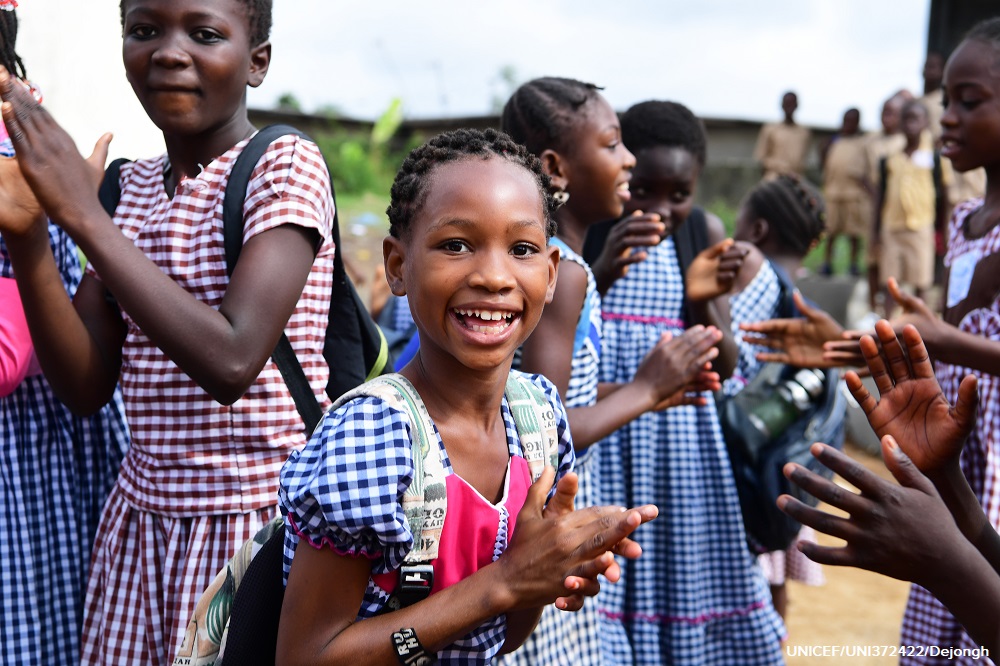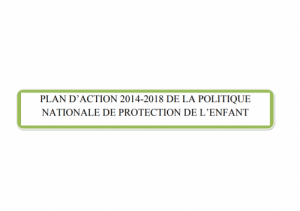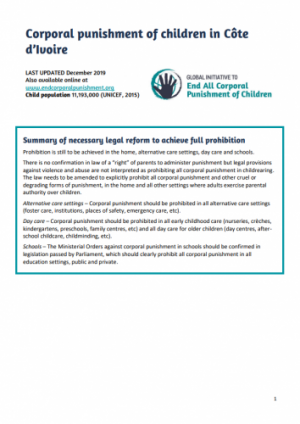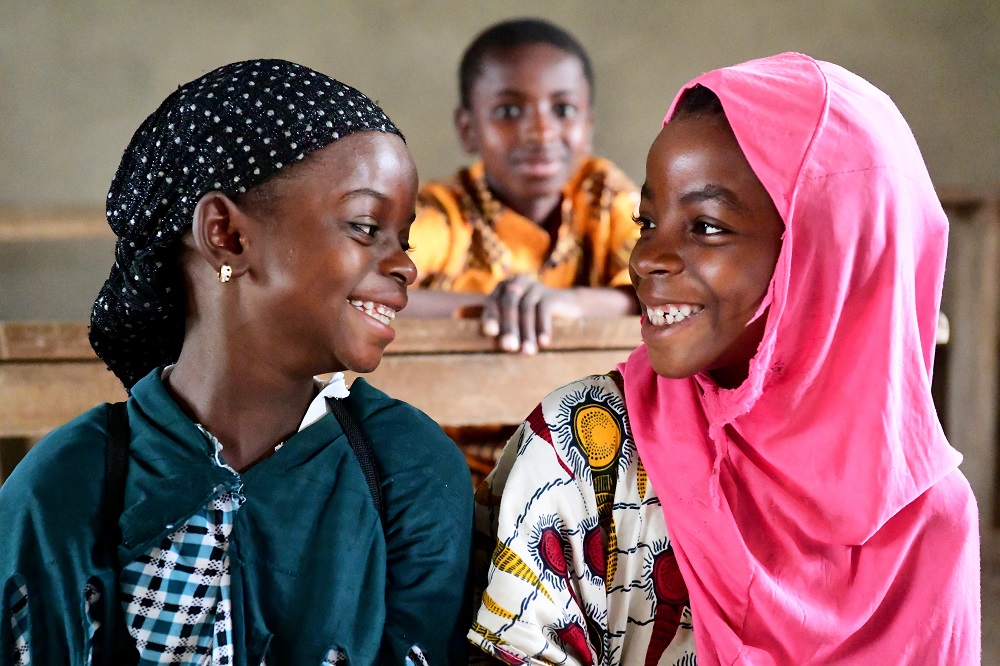The National Child Protection Policy of Côte d’Ivoire states the need for coordination between groups at the national and regional levels. At the regional level, representatives from the government and civil society organizations have convened in six pilot regions with support from UNICEF.
The United Nations Population Fund the President’s Emergency Plan for AIDS Relief (PEPFAR) have also set up coordination groups that focus on preventing gender-based violence and supporting orphans and vulnerable children. These groups are being harmonized at the national and regional level to ensure a more efficient use of time and resources.
Children are also consulted through the Child Parliament, which was established in 2013. From 2017 to 2018, elections were held in all regions to renew regional bodies of the child parliament.
Côte d’Ivoire has conducted demographic health surveys, along with several multiple indicator cluster surveys, the most recent of which was released in 2016. That multiple indicator cluster survey included data on violence against children, including corporal punishment and norms around violence against women, female genital mutilation and cutting, child marriage and child labor. In addition, the education sector collects data on violence against children in schools.
The government of Côte d’Ivoire is aware of the need to have a centralized data collection and analysis system, which could provide comprehensive disaggregated data on child protection, including violence against children. Additional support and resources are needed to develop such a system that could combine information from existing case management systems, especially those that work with orphans and vulnerable children, gender-based violence victims, and those engaged with child labor. Regular administrative data on violence against children cases is now collected from over 40 percent of social welfare centers.
In the summer of 2018, Côte d’Ivoire completed data collection for a Violence Against Children Survey, which was led by the National Statistical Office, coordinated by UNICEF, and technically supported by the Centers for Disease Control. The study was funded by PEPFAR through the Centers for Disease Control and UNICEF.
An integrated Child Protection Information System is administered by the Directorate of Studies, Planning and Statistics of the Ministry of Women, Family and Children. This system collects data relating to the violence, abuse and exploitation of children. It also uses a “Case Data” database in both online and offline formats to collect data on child mobility.
The National Strategy for Social Protection focuses on improving the lives of the poor; reducing child mortality, violence against children, and child labour; and eliminating gender discrimination. The Strategy also advocates for the strengthening of institutional and legal frameworks around these issues.
To strengthen coordination across sectors and create a common vision for child protection, the government of Côte d’Ivoire undertook a mapping of the child protection system. The first pillar of the action plan focuses on preventing violence and abuse against children and improving social norms and behaviors. Other pillars include improving victims’ assistance, fighting against impunity, strengthening means of implementation and developing a strategic axis.
It remains unclear how the Ministry of Education’s policy ban on corporal punishment is enforced in schools. Corporal punishment is lawful in the home and is not explicitly prohibited in daycare and alternative care settings. However, it is unlawful within the criminal justice system.
With the financial support of the INSPIRE fund, in February 2019 the Child Rights Coalition hosted a workshop on law reform to end violence against children. The workshop was organized in partnership with Save the Children and the Global Initiative to End All Corporal Punishment of Children, and in collaboration with the ministry in charge of child protection. The workshop provided training to participants in the seven INSPIRE strategies to end violence against children. Participants agreed on recommendations to implement the INSPIRE strategies, including prohibiting and eliminating corporal punishment, female genital mutilation and cutting, sexual violence and early marriage in Côte d’Ivoire.
Corporal punishment is prohibited in some settings. Prohibition is still to be achieved in the home, alternative care settings, daycare and schools.
Read more.
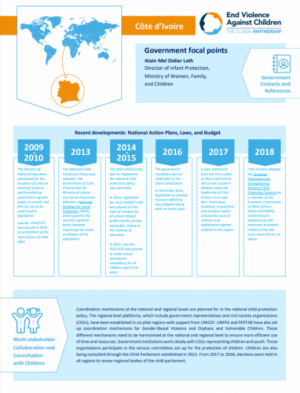 Country Progress Fact Sheet
Country Progress Fact Sheet
